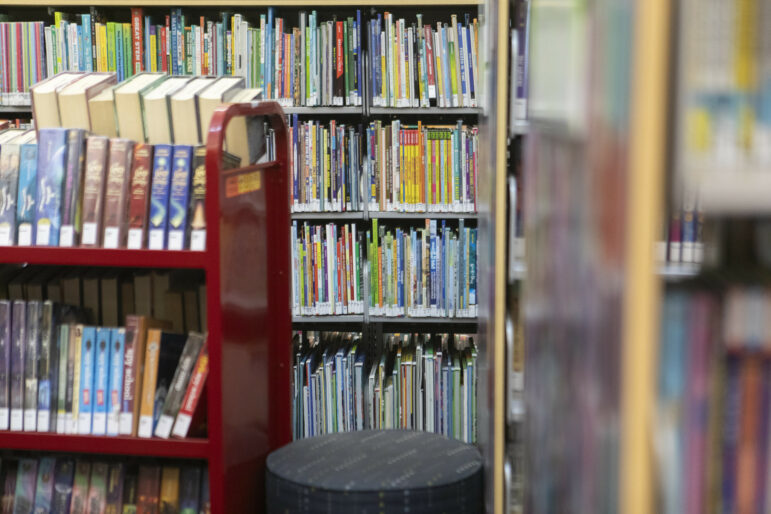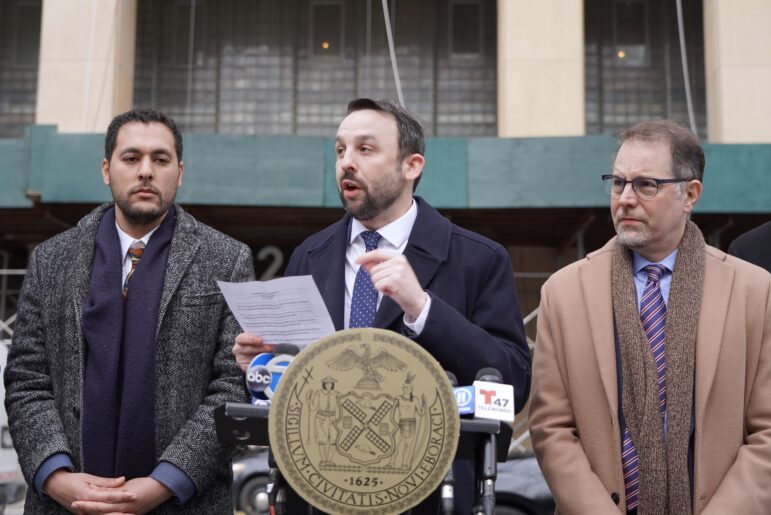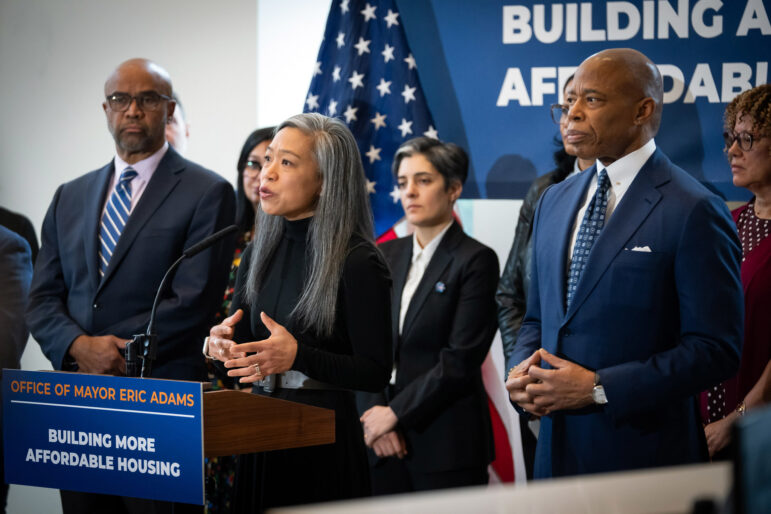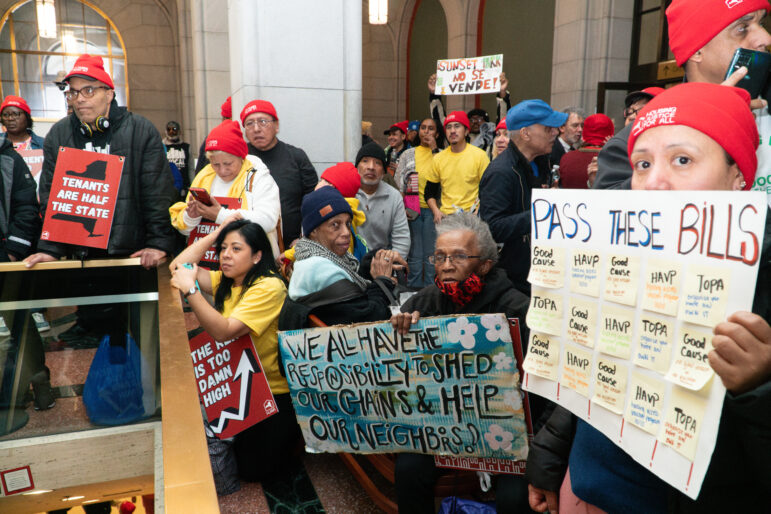“Efforts to censor and prohibit books are not the same as municipal negotiations about library operating budgets. But they are not entirely unrelated either. Both are clear indications of how the value of public libraries and access to knowledge is under threat across America.”

Emil Cohen/NYC Council Media Unit
The Queens Public Library branch in Flushing.In April 2022, in response to an unprecedented wave of book bans affecting schools across the country, Brooklyn Public Library launched Books Unbanned, a program for teens to apply for a digital library card and access the books that were being restricted in their communities. In its first eight months, the program allowed more than 7,600 teens to check out over 240,000 books.
The program was widely hailed and the librarians behind it were later named Librarians of the Year. It was a shining example of how citizens and institutions can stand up for freedom and democracy even as parts of the country take steps to suppress them.
Fast forward two years, and today New York City’s libraries are again embroiled in a fight for library access. Except this time, they’re not fighting book bans in other states; they’re working to fight precipitous budget cuts from city government. According to a coalition of city libraries, the astounding $58.3 million in proposed funding cuts for the next fiscal year will inevitably lead to reductions in staff, weekend service, library materials, building renovations, and programming. This comes on the heels of municipal budget cuts that already led to reductions in service last year.
Of course, efforts to censor and prohibit books are not the same as municipal negotiations about library operating budgets. But they are not entirely unrelated either. Both are clear indications of how the value of public libraries and access to knowledge is under threat across America.
Ever since Benjamin Franklin’s efforts to establish the Library Company of Philadelphia in the 1730s, libraries have been among the United States’ most democratic institutions. As gateways to knowledge, libraries are foundational to the idea of an educated and informed populace, necessary for a healthy and equitable democracy. In providing free access to all, they are an affirmative public good that reflect our common humanity and basic social compact.
Libraries are also trusted public spaces where all can gather. They serve diverse communities with multifaceted purposes, from voting to taxes. They offer unique programs that serve the less fortunate, from asylum seekers to citizens left behind in the digital divide, to the elderly and homebound. They are working to help students impacted by the learning loss from COVID-19.
These are the communities in New York City that will be most impacted by proposed cuts.
The national wave of book bans that has metastasized for the past three years has underscored just how much access to books matters: to democracy, to identity formation, to the cohesion of diverse communities. We are frequently told if books are banned in schools, families and students can “just get them at the public library.”
We expect public libraries to step into any such breach, as reliable, ever-present institutions of civil society. But we cannot treat these institutions as the fail-safe mechanism for public education and the social safety net on the one hand, and undercut their operations with the other.
And indeed, the ideological assault on libraries nationwide is continuing to worsen. From Alabama to California there are escalating demands to remove LGBTQ books and Pride displays, and efforts to review library collections to sift out books with certain content. Numerous states are passing laws to threaten librarians and educators with criminal penalties. One Idaho library just banned children—becoming “adults-only”—in an effort to comply with one of these pseudo-authoritarian laws.
In the face of this crisis, our city’s libraries have risen to the occasion: launching innovative programs to grant ready access to books for youth across the country, and working to raise public awareness of this crisis. They have set the bar high, serving as a model for how public libraries can stand unflinchingly to facilitate equitable and inclusive access to information for all, regardless of background, income, or beliefs.
In this, our libraries mirror the values of our city. As the “capital of the world,” New Yorkers know that we stand for something universal and that what we decide matters. New York must continue to be a citadel of books and learning at a time when they are under siege elsewhere.
Countless other cities and states look to New York’s libraries as exemplars, from their collections to their services to their programs. Brooklyn’s Books Unbanned program is only one such example, emulated in Seattle and beyond. If that status is to be maintained, ours must be a city investing more in its libraries, not sacrificing them during shortsighted budget negotiations.
Jonathan Friedman is Sy Syms Managing Director of US Free Expression Programs at PEN America.








